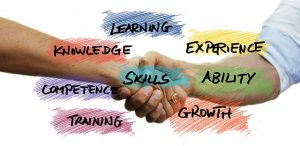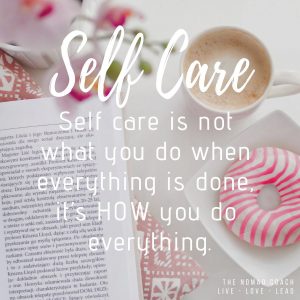Table of Contents
Stuck Between Stigma & Lack of Support
It is an odd phenomenon: when entering the humanitarian sector, an unspoken, widely spread rule descents upon aid and relief workers: ‘I decided to do this, so I can handle it’. Although, obviously, the rule doesn’t exist, and although no one is telling others that this is how it works, aid workers themselves often seem to be enthusiastic adopters of this self-flagellating ‘rule’. It is, above all, the expectations that aid workers have of themselves, about who they must be and what they believe they should be able to handle, that brings about a self-inflicted taboo on acknowledging psychological stress, let alone asking for support.
 But it is what it is… Aid workers often work for prolonged periods of time in volatile environments marked by violence, poverty and disaster. And once done in one place, they move on to the next. The Guardian’s Global Development Professional Network (GDPN) survey on mental health and wellbeing reported “that 79% of 754 respondents [in aid and relief work] had experienced mental health issues, with 93% stating that these were related to their work in the aid industry” (Young, 2015), research suggesting a mental health crisis among aid workers. However, when aid workers do find the courage to reach out, often very little specialized services are available and lack contextualization.
But it is what it is… Aid workers often work for prolonged periods of time in volatile environments marked by violence, poverty and disaster. And once done in one place, they move on to the next. The Guardian’s Global Development Professional Network (GDPN) survey on mental health and wellbeing reported “that 79% of 754 respondents [in aid and relief work] had experienced mental health issues, with 93% stating that these were related to their work in the aid industry” (Young, 2015), research suggesting a mental health crisis among aid workers. However, when aid workers do find the courage to reach out, often very little specialized services are available and lack contextualization.
While most international humanitarian aid organizations have security plans and training in place to support the physical safety of their staff, regulated support for psychological wellbeing is far from ideal, often due to a lack of resources (Douglas & Quinn, 2016). Although organizations recognize the need and offer some form of support, programs are often insufficient in their structure, approach and procedures. Some offer preparation workshops, others inform staff to whom to turn when they are struggling with mental health issues, others out-source staff care all together.
So here we are, stuck with aid and relief workers who don’t ask, and organizations who don’t actively and sufficiently offer, let alone create a common ground for proper prevention, communication and care.
Inside the Humanitarian Mind
What is the measuring stick we are using, and what level of work stress or hardship do we need to witness or experience before we believe it’s serious enough? Before we allow ourselves to take care of our own mental health? The mind of the aid worker comes up with great, yet faulty reasoning…
“It was my own choice to be in this line of work, so I’m supposed to not feel effected. I’ll handle it”, said a regional manager working in Myanmar. When talking with a child protection specialist from Sweden who works in South Sudan, it went even further than that: “When I tell my brother how hard it is sometimes and how I feel about it, he respond with things like, why don’t you do something else, or why did you choose this kind of work to begin with? I feel that because of my choice of work, I don’t have the right to feel frustrated, exhausted or psychologically effected by it.”
Another favorite line of reasoning is the one where we tell ourselves that we work with communities who have little choice about being in the situation they are in. So who are we to complain? We work in it, with it, it is not our lives that are affected the way theirs are. So, we’ll cope. We’ll suck it up. Whatever it is. And there we go: we feel privileged about our place in life and we feel guilty about it too. This humanitarian aid attitude is also referred to as “machismo” and “martyr” mindset.
Organizational Responsibility: Prevention & Support
“Despite known occupational hazards, anecdotal reports indicate that employers offer little social or psychological support in the field or after assignment. Explanations differ. Non-government organizations may have unrealistic expectations of workers’ adaptive capabilities, combined with limited resources. One author suggested that non-government organizations may consider relief workers expendable assets whose high attrition rates may be easily balanced with an ongoing supply of enthusiastic, committed humanitarians. One survey of non-government organizations’ human resources staff found that psychological support of workers was considered less important than that of the local population. Furthermore, workers themselves may feel that their suffering is less relevant as well.” (Connorton, Perry, Hemenway and Miller, 2012)
Prevention, as most aid workers know all too well, starts with acknowledgement and awareness. As with the communities we work with, prevention is not an external phenomenon that magically improves realities. It is a way forward that requires open conversation and engagement of all parties involved. A way forward that stimulates the reduction of stigma. A way forward that requires conscious choice by organizations and their staff to build a) an open and ongoing conversation; b) (self-)evaluation skills of aid workers to assess psychological needs; c) coping skills and mental resilience, and most of all d) a monitoring & support system that is engrained in the way we work as organizations.
The major issue facing leadership of international aid organizations, aside the allocation  of resources, seems to be the lack of actively stream-lined processes based on clear and commonly known bylaws, structured by TOR’s to guide field operations. This includes the balance between clear instructions and accountability, and at the same time a flexible atmosphere where people can easily be part of a support system without feeling pressured, judged or otherwise affected.
of resources, seems to be the lack of actively stream-lined processes based on clear and commonly known bylaws, structured by TOR’s to guide field operations. This includes the balance between clear instructions and accountability, and at the same time a flexible atmosphere where people can easily be part of a support system without feeling pressured, judged or otherwise affected.
HR & Security management can join forces in addressing sick leave, staff mental health problems and stress related turnover, through implementing psychological support systems and monitoring mental health in their organizations. For organizations looking to address trauma related staff challenges in particular, trauma training by UKPTS is a great resource.
Another point, as mentioned earlier, of addressing the long-term consequences and improving risk management for both organizations and staff, is prevention through actively building the resilience of staff exposed to volatile environments. The Headington Institute provides a great starting point for free online training and resources for humanitarian organizations and aid workers to start changing the way they are looking at and dealing with mental health.
Otherwise, organizations can develop an active support structure that includes psychologists, coaches and other professionals relevant to the functional, emotional and psychological support of their employees.
Using Your Mindset
Eventually, whether our organizations have it all is in place or it’s one big chaos, how do we, aid workers, take care of ourselves and one another? How do we recognize the needs we have; how do we keep an eye on our well-being on a regular basis, and when do we reach out for help?
 One way of learning more about our well-being is understanding our mindset: once we know what our ‘normal’ mindset looks like, our regular day to day mode (meaning: away from the effects of work related stress and exposure), we can consciously start recognizing when we are not being in our ‘normal’ and for how long. This can give us a strong indicator of what is going on with our mental health. Once our ‘normal’ drops to some sort of crisis management, task-focused, fight-or-flight behavior; once we start realizing that we have been unusually tired or stressed, we can start reading the indicators for deeper needs related to our emotional and psychological well-being.
One way of learning more about our well-being is understanding our mindset: once we know what our ‘normal’ mindset looks like, our regular day to day mode (meaning: away from the effects of work related stress and exposure), we can consciously start recognizing when we are not being in our ‘normal’ and for how long. This can give us a strong indicator of what is going on with our mental health. Once our ‘normal’ drops to some sort of crisis management, task-focused, fight-or-flight behavior; once we start realizing that we have been unusually tired or stressed, we can start reading the indicators for deeper needs related to our emotional and psychological well-being.
Ultimately, it is the awareness we have about our emotions, thoughts and actions in response to the world around us, that increases our ability to manage our mental health. Hopefully, organizations will take the appropriate responsibility to provide a platform where we can do just that.
A few tips to take to heart:
- Be kind to yourself: allow yourself to feel what you feel, acknowledge it, and give yourself a break. Not because
 you have finally convinced yourself that you really deserve it, but just because you can, and because it will do you good.
you have finally convinced yourself that you really deserve it, but just because you can, and because it will do you good. - Disconnect: decide when work time is over and disconnect from your work-email, notifications, phone calls. Ask people to respect your down time and encourage them to do the same. They know where to find you when it’s a real emergency!
- Do something you want to do but didn’t for a while: we all know what that list looks like. Whether it is reconnecting with a friend we didn’t talk to for way too long, knitting that sweater or going for a swim, MAKE IT HAPPEN!
- Take a proper break: No, not a few days off, but a proper, real vacation void of emails, proposals, or any other work-related issues.
- Honor your body: whether is a lack of sleep or exercise, too much alcohol or unhealthy food, your body is the vehicle that keeps you on your feet every day. Pick your Top 3 non-negotiables when it comes to healthy living and prioritize them starting today!
- Allow yourself support: connect with someone. No, not only if you are falling apart, but because it feels good to get it off your chest, whatever it is. Cry, laugh and let it go!
In the meanwhile, we can urge our organizations to review their staff support system as they are employing so many people working in the most challenging environments.
If you are looking for support or more information, you can contact me directly at coach@minouhexspoor.com or visit my website www.minouhexspoor.com

